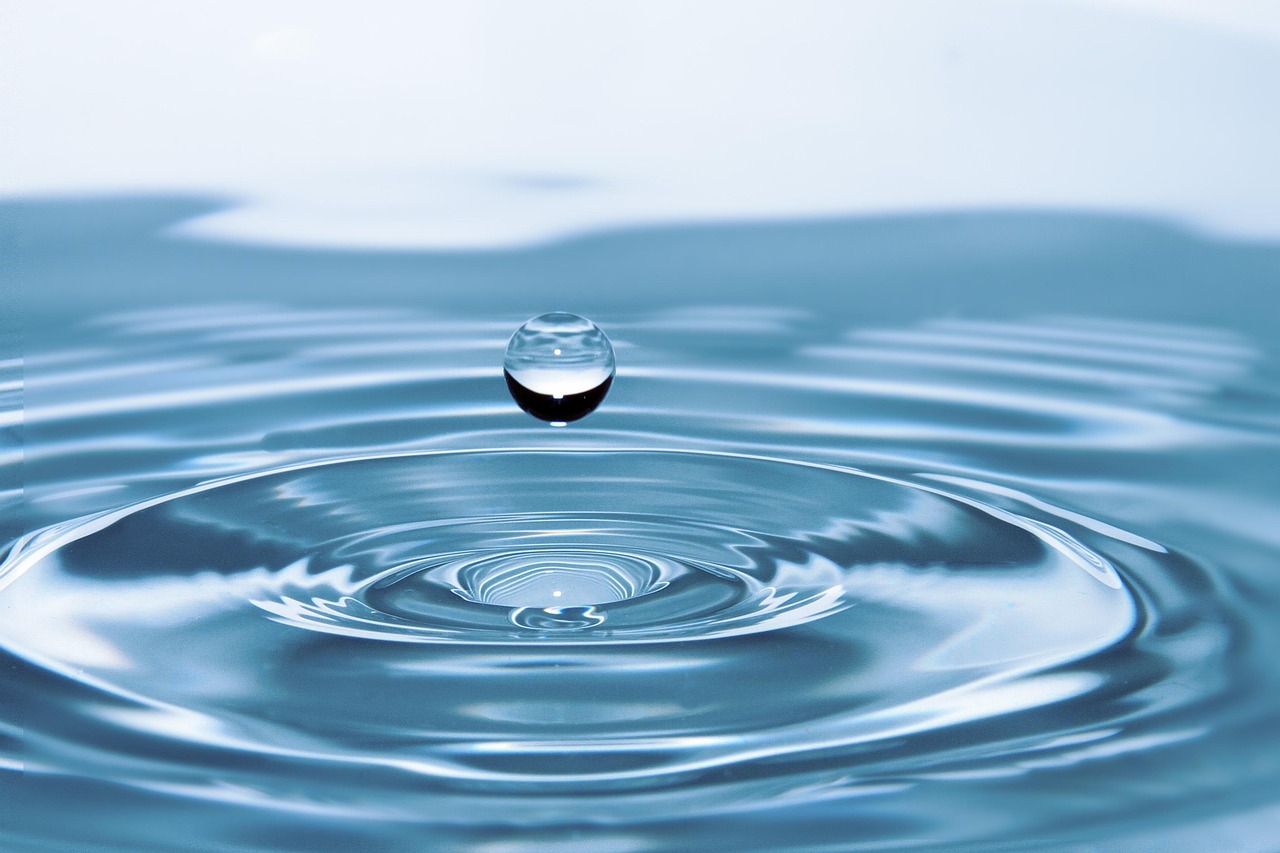Water fasting has gained popularity as an effective method for weight loss. This article explores the concept of water fasting and its potential benefits, while also detailing how to use a fasting calculator to track your progress effectively and safely.
What is Water Fasting?
Water fasting is a dietary practice that involves abstaining from all food and consuming only water for a designated period. This method is not just about weight loss; it also taps into the body’s natural healing processes. During a water fast, the body shifts from using glucose for energy to burning fat stores, which can lead to significant weight loss.
Benefits of Water Fasting for Weight Loss
- Rapid Weight Loss: One of the most immediate benefits of water fasting is the potential for rapid weight loss. By significantly reducing caloric intake, the body starts utilizing stored fat as energy.
- Detoxification: Water fasting may help eliminate toxins from the body, promoting better overall health.
- Improved Metabolic Health: Fasting can enhance insulin sensitivity and lower blood sugar levels, contributing to better metabolic health.
How to Use a Water Fasting Weight Loss Calculator
Utilizing a water fasting weight loss calculator can help you monitor your progress effectively. Here’s how to use it:
- Setting Your Goals: Before starting, define clear and realistic weight loss goals. This will help you stay motivated.
- Inputting Your Data: Accurate data entry is crucial. Input your starting weight, target weight, and the duration of your fast into the calculator.
Potential Risks and Considerations
While water fasting can offer numerous benefits, it is important to be aware of potential risks:
- Health Risks of Prolonged Fasting: Extended fasting can lead to health complications, such as electrolyte imbalances and nutrient deficiencies.
- Who Should Avoid Water Fasting? Certain individuals, including pregnant women and those with chronic health conditions, should avoid water fasting without medical supervision.
Tips for a Successful Water Fast
- Stay Hydrated: Drinking sufficient water is vital. Aim for at least 2-3 liters of water daily to stay hydrated.
- Listen to Your Body: Pay attention to how your body feels during the fast. If you experience severe discomfort or health issues, consider ending the fast.
In summary, water fasting can be a powerful tool for weight loss when done correctly. By understanding its benefits and risks, and utilizing a fasting calculator for tracking progress, individuals can embark on their fasting journey with confidence. Remember to consult with a healthcare professional before starting any fasting regimen, especially if you have underlying health issues.

What is Water Fasting?
Water fasting is a method where individuals abstain from all food intake and consume only water for a designated period. This practice has gained popularity for its potential health benefits, particularly in relation to weight loss. Understanding the science behind water fasting is essential for anyone considering this approach, as it can help clarify the physiological changes that occur during fasting and how they contribute to weight management.
When the body enters a state of fasting, it undergoes a series of metabolic shifts. Initially, the body utilizes glycogen stores for energy, which are carbohydrates stored in the liver and muscles. Once these stores are depleted, which typically occurs within the first 24 hours of fasting, the body begins to break down fat for fuel. This process, known as lipolysis, results in the release of fatty acids into the bloodstream, which are then converted into ketones by the liver. Ketones serve as an alternative energy source, allowing the body to function even in the absence of food.
One of the primary reasons individuals pursue water fasting is for weight loss. Research indicates that short-term fasting can lead to rapid reductions in body weight, primarily due to the caloric deficit created when food intake is eliminated. This caloric deficit triggers the body to burn stored fat, leading to significant weight loss over time. Moreover, fasting has been shown to enhance metabolic health by improving insulin sensitivity and reducing inflammation, which are critical factors in weight management.
In addition to weight loss, water fasting may offer other health benefits. Some studies suggest that fasting can promote autophagy, a cellular repair process that helps eliminate damaged cells and regenerate new ones. This process is believed to contribute to improved overall health and longevity. Furthermore, water fasting has been linked to enhanced cognitive function, as the brain can utilize ketones as an efficient energy source during periods of fasting.
Despite its potential benefits, it is crucial to approach water fasting with caution. Individuals should be aware of the risks associated with prolonged fasting, including nutrient deficiencies and electrolyte imbalances. It is advisable to consult with a healthcare professional before embarking on a water fast, especially for those with pre-existing medical conditions or those taking medications.
In summary, water fasting is a powerful practice that can facilitate weight loss and promote various health benefits. By understanding the underlying mechanisms of fasting and its effects on the body, individuals can make informed decisions about their health and wellness journey. As with any dietary approach, moderation and careful consideration are key to achieving optimal results.

Benefits of Water Fasting for Weight Loss
Water fasting has gained popularity as a method for weight loss and overall health improvement. Understanding the benefits of water fasting is essential for anyone considering this approach. This section delves into the primary advantages, including rapid weight loss, detoxification, and improved metabolic health.
Rapid Weight Loss
One of the most significant advantages of water fasting is its ability to promote rapid weight loss. When the body is deprived of food, it begins to utilize stored energy sources, primarily fat, to fuel its functions. This process, known as ketosis, can lead to substantial weight loss in a short period. Research indicates that individuals may lose up to 2-3 pounds per day during the initial stages of water fasting, primarily due to water weight and glycogen depletion.
Detoxification
Water fasting also plays a crucial role in detoxification. During fasting, the body shifts its focus from digestion to healing and cleansing. This shift allows the liver and kidneys to work more efficiently in eliminating toxins accumulated from processed foods and environmental pollutants. Many individuals report feeling more energized and mentally clear after completing a fasting period, attributing these feelings to the body’s detoxification processes.
Improved Metabolic Health
Another vital benefit of water fasting is its positive impact on metabolic health. Studies suggest that fasting can enhance insulin sensitivity, which is crucial for managing blood sugar levels. Improved insulin sensitivity can reduce the risk of type 2 diabetes and other metabolic disorders. Additionally, fasting may help lower blood pressure and cholesterol levels, further contributing to overall cardiovascular health.
Cellular Repair and Autophagy
During fasting, the body initiates a process known as autophagy, where cells remove damaged components and regenerate. This cellular repair mechanism is essential for maintaining health and longevity. Autophagy has been linked to reduced inflammation and a lower risk of chronic diseases, making water fasting a potentially powerful tool for enhancing overall well-being.
Enhanced Mental Clarity
Many individuals report heightened mental clarity and focus during water fasting. This phenomenon is attributed to the body’s shift in energy sources and the release of certain hormones, such as norepinephrine, which can enhance cognitive function. The absence of food distractions allows individuals to concentrate better on tasks, leading to increased productivity.
Potential for Long-Term Weight Management
While water fasting is often viewed as a short-term solution, it can also aid in long-term weight management. By resetting the body’s relationship with food, individuals may find it easier to make healthier dietary choices post-fast. This reset can lead to sustainable weight loss and a healthier lifestyle overall.
In summary, the benefits of water fasting are numerous and significant. From rapid weight loss and detoxification to improved metabolic health and enhanced mental clarity, water fasting may provide a comprehensive approach to health improvement. However, it is essential to approach fasting with caution and consider individual health needs before embarking on this journey.
Rapid Weight Loss Explained
Rapid weight loss during water fasting is a phenomenon that many individuals seek for various reasons, including health improvements, aesthetic goals, or personal challenges. Understanding how the body reacts to fasting can provide valuable insights into its effectiveness and safety.
When a person engages in water fasting, the body undergoes a series of metabolic changes. Initially, the body utilizes glucose stored in the liver and muscles as its primary energy source. However, as fasting continues and these stores deplete, the body transitions to a state known as ketosis, where it begins to break down fat for energy.
This metabolic shift is crucial for weight loss. During ketosis, the liver converts fatty acids into ketones, which serve as an alternative energy source for the brain and body. This process not only facilitates weight loss but also helps to preserve muscle mass, which is often a concern during any weight loss regimen.
| Phase | Energy Source | Duration |
|---|---|---|
| Initial Phase | Glucose | 0-24 hours |
| Transition Phase | Fat | 24-72 hours |
| Ketosis Phase | Ketones | 72 hours and beyond |
Moreover, water fasting can lead to a significant caloric deficit, which is essential for weight loss. By consuming no calories, the body is forced to tap into its fat reserves for energy. This caloric deficit is a primary driver of weight loss during fasting periods. It’s important to note that the degree of weight loss can vary based on individual factors such as starting weight, metabolism, and duration of the fast.
- Short-term weight loss: Many individuals report losing several pounds within the first few days of a water fast.
- Long-term effects: Sustained fasting can lead to more significant weight loss over time, but it should be approached with caution.
- Health improvements: In addition to weight loss, water fasting may improve metabolic health markers like blood sugar and cholesterol levels.
However, while the rapid weight loss associated with water fasting can be appealing, it is essential to approach this practice with caution. Consulting with a healthcare provider before embarking on a water fasting journey is highly recommended, especially for those with pre-existing health conditions.
In conclusion, water fasting can lead to rapid weight loss by forcing the body to utilize stored fat for energy. By understanding the phases of energy utilization and the impacts of caloric deficit, individuals can make informed decisions about whether this fasting method aligns with their health goals.
Caloric Deficit and Fat Loss
Creating a caloric deficit is a fundamental principle of weight loss. It refers to the state where the number of calories consumed is less than the number of calories expended. This deficit forces the body to utilize stored fat for energy, leading to weight reduction. In this section, we will delve into how water fasting can effectively induce a caloric deficit, thereby promoting fat loss.
Water fasting is a method where individuals abstain from all food and consume only water for a predetermined duration. This approach not only simplifies meal planning but also allows the body to enter a state of ketosis, where it burns fat for fuel. During fasting, the body’s metabolism shifts to utilize fat stores, which can lead to rapid weight loss.
- Understanding Caloric Deficit: To achieve weight loss, one must create a caloric deficit. This can be accomplished through various means, including dietary changes, increased physical activity, and, notably, fasting.
- Water Fasting as a Tool: By consuming only water, individuals can eliminate caloric intake entirely, making it one of the most straightforward methods to achieve a caloric deficit.
During water fasting, the body begins to deplete its glycogen stores, which are the primary source of energy derived from carbohydrates. As glycogen is used up, the body turns to fat reserves, which are broken down into fatty acids and ketones for energy. This process not only facilitates weight loss but also enhances metabolic health.
Moreover, water fasting can lead to several physiological changes that further aid in fat loss:
- Improved Insulin Sensitivity: Fasting can enhance insulin sensitivity, allowing the body to utilize glucose more effectively and reducing fat storage.
- Hormonal Changes: Fasting influences hormones such as ghrelin and leptin, which regulate hunger and satiety, potentially reducing overall caloric intake.
- Enhanced Fat Oxidation: The body’s shift to burning fat during fasting can lead to improved fat oxidation rates, further supporting weight loss efforts.
It’s important to note that while water fasting can induce a caloric deficit, it should be approached with caution. Prolonged fasting can lead to nutrient deficiencies and other health risks. Therefore, it is advisable to consult with a healthcare professional before embarking on an extended fasting regimen.
In summary, water fasting is a powerful method for creating a caloric deficit, leading to significant fat loss. By understanding the mechanisms behind this process and implementing it safely, individuals can effectively reach their weight loss goals.
Effects on Metabolism
Fasting, particularly water fasting, has gained attention for its significant effects on metabolism. During periods of fasting, the body undergoes various physiological changes that can influence its metabolic rate and energy expenditure. Understanding these changes is essential for anyone considering fasting as a method for weight loss or health improvement.
When an individual engages in water fasting, the body initially utilizes glycogen stores for energy. Glycogen, stored in the liver and muscles, is the body’s quick-access energy reserve. However, as fasting continues, typically after 24 hours, glycogen stores become depleted, prompting the body to switch to fat oxidation for energy. This metabolic shift is crucial for weight loss, as the body begins to burn stored fat, leading to a reduction in body weight.
Moreover, water fasting can influence the body’s basal metabolic rate (BMR). Research indicates that short-term fasting may temporarily increase BMR due to the release of catecholamines, hormones that help mobilize fat stores for energy. However, prolonged fasting can lead to a decrease in BMR as the body adapts to conserve energy, potentially slowing down weight loss over time.
Another critical aspect of metabolism during fasting is the role of hormones. Fasting affects several hormones, including insulin and glucagon. Insulin levels drop significantly during fasting, which facilitates fat burning. Conversely, glucagon levels rise, promoting the release of stored energy. This hormonal interplay is vital for maintaining energy balance and metabolic efficiency during fasting periods.
Additionally, fasting can enhance autophagy, a cellular process that removes damaged cells and regenerates new ones. This process not only aids in cellular repair but also contributes to improved metabolic health. Enhanced autophagy is associated with better insulin sensitivity and reduced inflammation, both of which are beneficial for metabolic function.
It’s important to note that the metabolic effects of fasting can vary among individuals based on factors such as age, sex, and overall health. For instance, younger individuals may experience a more pronounced increase in metabolic rate compared to older adults. Furthermore, individuals with certain medical conditions should approach fasting with caution, as it may exacerbate existing health issues.
In conclusion, water fasting induces notable changes in metabolism, including shifts in energy utilization and hormonal balance. While it can promote fat burning and enhance metabolic health, it’s essential to consider individual differences and potential risks. Understanding these metabolic effects can help individuals make informed decisions about incorporating fasting into their health and wellness routines.
Detoxification and Health Benefits
Water fasting, a practice that involves abstaining from all food and consuming only water, has gained attention not just for its weight loss potential, but also for its detoxification benefits. This section delves into how water fasting may assist in eliminating toxins from the body and enhancing overall health.
During a water fast, the body enters a state of autophagy, a natural process where cells break down and remove dysfunctional components. This process is crucial for maintaining cellular health and can lead to the elimination of toxins that accumulate from environmental factors, poor diet, and stress. As the body shifts its focus from digestion to detoxification, it can effectively cleanse itself of harmful substances.
One of the primary benefits of detoxification through water fasting is the reduction of inflammation. Chronic inflammation is linked to various health issues, including heart disease, diabetes, and even cancer. By allowing the body to rest and recover, fasting can help lower inflammation levels, leading to improved health outcomes.
Furthermore, water fasting can enhance the function of the liver, the body’s main detoxification organ. The liver plays a vital role in filtering blood and metabolizing nutrients. During fasting, the liver can focus on detoxifying chemicals and waste products without the burden of processing food. This can result in better overall liver health and improved metabolic function.
In addition to physical detoxification, water fasting may also promote mental clarity and emotional well-being. Many individuals report heightened focus and a sense of calm during fasting periods, which can be attributed to the reduction of toxins that affect brain function. This mental clarity can lead to better decision-making and a more positive outlook on life.
Moreover, fasting can promote a deeper connection with one’s body. As individuals engage in this practice, they often become more aware of their eating habits and the impact of certain foods on their health. This awareness can lead to healthier choices post-fast, contributing to long-term wellness.
It is important to note, however, that while water fasting can provide significant detoxification benefits, it is not suitable for everyone. Individuals with certain medical conditions, such as diabetes or eating disorders, should consult healthcare professionals before attempting prolonged fasting. Additionally, proper hydration is essential during a fast to support the body’s detoxification processes.
In summary, water fasting offers a multifaceted approach to detoxification and health improvement. By allowing the body to cleanse itself of toxins, reduce inflammation, and promote liver health, fasting can lead to enhanced physical and mental well-being. As with any health practice, it is crucial to approach water fasting with caution and awareness, ensuring that it aligns with individual health needs.

How to Use a Water Fasting Weight Loss Calculator
Using a water fasting weight loss calculator is an effective way to monitor your progress throughout your fasting journey. These calculators can assist you in setting realistic goals, tracking your weight loss, and ensuring that you’re on the right path to achieving your desired results. Below is a comprehensive, step-by-step guide on how to utilize these tools for optimal outcomes.
Step 1: Understanding the Calculator
Before diving into the actual calculation, it’s essential to understand what a water fasting weight loss calculator does. It typically requires inputs such as your starting weight, target weight, fasting duration, and sometimes even your age and activity level. The calculator uses this information to estimate your potential weight loss and track your progress over time.
Step 2: Setting Your Goals
Establishing clear and achievable goals is crucial before starting your water fasting regimen. Ask yourself questions like:
- What is my target weight?
- How much weight do I aim to lose during this fasting period?
- What is a realistic timeframe for achieving my goals?
By answering these questions, you can input your goals into the calculator, which will help guide your fasting efforts.
Step 3: Inputting Your Data
Accurate data input is vital for effective tracking. Here’s what you should enter:
- Starting Weight: Your current weight at the beginning of the fast.
- Target Weight: The weight you aspire to achieve.
- Fasting Duration: The number of days you plan to fast.
Ensure that the information is precise, as even minor errors can lead to inaccurate results.
Step 4: Tracking Your Progress
Once you start your fast, regularly update the calculator with your current weight. This will provide you with a clear view of your progress and help you stay motivated. Many calculators also offer graphical representations of your weight loss journey, which can be incredibly encouraging.
Step 5: Adjusting Your Goals
As you progress, you may find that your initial goals need adjustment. If you’re losing weight faster than anticipated, you might want to set new targets. Conversely, if you’re not meeting your goals, consider reassessing your fasting duration or overall approach.
Common Questions About Water Fasting Calculators
- Are these calculators accurate? While they provide estimates based on your inputs, individual results may vary due to factors like metabolism and water retention.
- Can I use these calculators for intermittent fasting? Yes, many calculators can be adapted for intermittent fasting, allowing you to track weight loss over shorter fasting periods.
Final Thoughts
Using a water fasting weight loss calculator can significantly enhance your fasting experience by providing clarity and structure. By following the steps outlined above, you can effectively track your progress, make informed adjustments, and ultimately achieve your weight loss goals. Remember that while calculators are useful tools, listening to your body and consulting with healthcare professionals is essential for a safe fasting experience.
Setting Your Goals
Setting clear and achievable weight loss goals is a fundamental step before embarking on a water fast. This process not only helps in tracking progress but also ensures that the fasting experience is both effective and safe. Here’s how to determine realistic goals that will guide you throughout your fasting journey.
Understanding Your Starting Point
Before you can set your weight loss goals, it’s essential to assess your current health status and weight. This includes:
- Current Weight: Knowing your starting weight provides a baseline for measuring progress.
- Body Composition: Understanding the ratio of fat to muscle can help tailor your goals more effectively.
- Health Conditions: Consider any existing health issues that may affect your fasting experience.
Defining Your Weight Loss Goals
Once you have a clear understanding of your starting point, you can begin to define your weight loss goals. Here are some tips:
- Set Specific Targets: Instead of a vague goal like “I want to lose weight,” aim for something concrete, such as “I want to lose 10 pounds in 2 weeks.”
- Make It Measurable: Use quantifiable metrics to track progress, like weekly weigh-ins or body measurements.
- Ensure Achievability: While it’s important to challenge yourself, setting unrealistic goals can lead to disappointment. Aim for a safe weight loss rate of 1-2 pounds per week.
- Relevance to Your Lifestyle: Consider how your goals fit into your daily life, including work, social activities, and overall well-being.
- Time-Bound Goals: Establish a timeline for achieving your goals to maintain motivation and accountability.
Utilizing a Water Fasting Weight Loss Calculator
A water fasting weight loss calculator can be an invaluable tool in this process. It helps you input your data and track your progress against your goals. Here’s how to use it effectively:
- Input Your Current Weight: Start by entering your current weight into the calculator.
- Set Your Target Weight: Enter the weight you aim to achieve by the end of your fasting period.
- Track Your Progress: Regularly update the calculator with your weight changes to see how close you are to your goal.
Staying Motivated
Maintaining motivation throughout your fasting journey is crucial. Consider the following strategies:
- Visual Reminders: Keep a visual representation of your goals, such as a chart or photos, to remind you of your progress.
- Celebrate Small Wins: Acknowledge and reward yourself for reaching mini-goals along the way.
- Seek Support: Engaging with a community or finding a fasting buddy can provide encouragement and accountability.
By setting clear, achievable goals and utilizing the right tools, you can embark on a water fasting journey that is both rewarding and effective. Remember to listen to your body and adjust your goals as necessary to ensure a safe and healthy fasting experience.
Inputting Your Data
To achieve accurate tracking of your water fasting journey, inputting the correct data into your weight loss calculator is essential. This section will guide you through the critical information that needs to be entered to ensure precise monitoring of your progress.
- Starting Weight: Begin by entering your current weight. This figure serves as the baseline for measuring your progress throughout the fasting period.
- Target Weight: Clearly define your goal weight. Setting a realistic target helps in maintaining motivation and provides a clear endpoint for your fasting efforts.
- Height: Inputting your height is crucial as it helps the calculator determine your Body Mass Index (BMI), which is a vital metric in assessing your weight loss journey.
- Age: Your age can influence metabolism and weight loss rates. Including this information allows the calculator to provide more tailored insights.
- Gender: Gender differences can affect weight loss patterns. Specifying this will help in generating more accurate results.
- Duration of Fast: Indicate how long you plan to fast. This duration is key to calculating the potential weight loss and health benefits.
- Activity Level: Your daily activity level can significantly impact weight loss. Categorize yourself as sedentary, lightly active, moderately active, or very active to receive the most accurate tracking results.
Once you have gathered this information, input it into the calculator. Ensure that all entries are accurate to avoid misleading results. Inaccurate data can lead to unrealistic expectations and hinder your motivation throughout the fasting period.
Moreover, keep in mind that tracking progress is not just about weight. Monitoring other factors such as energy levels, mood, and overall health can provide a more comprehensive view of your fasting experience. Consider keeping a journal where you can log these aspects alongside your weight loss data.
In addition to the numerical inputs, it’s beneficial to reflect on your motivation for fasting. Understanding your personal reasons for choosing this path can enhance your commitment and provide clarity during challenging moments.
Finally, remember that while calculators can provide valuable insights, they are just tools. Listening to your body and adjusting your approach based on how you feel is equally important. This holistic view will ensure that your water fasting journey is both effective and safe.

Potential Risks and Considerations
Water fasting, while often touted for its potential benefits, is not without its risks. Understanding these risks is crucial for anyone considering this approach to weight loss. In this section, we will delve into the potential dangers associated with water fasting and highlight important considerations to keep in mind before embarking on this journey.
Extended periods of water fasting can lead to several health complications. Some of the most significant risks include:
- Nutrient Deficiencies: Prolonged fasting deprives the body of essential nutrients, leading to deficiencies that can affect overall health.
- Electrolyte Imbalance: Extended fasting can disrupt the balance of electrolytes, which are vital for muscle and nerve function.
- Muscle Loss: The body may begin to break down muscle tissue for energy, especially during longer fasts, which can slow metabolism.
- Fatigue and Weakness: Many individuals report feelings of extreme fatigue and weakness during prolonged fasting, which can hinder daily activities.
Not everyone is suited for water fasting. Certain groups should approach this practice with caution or avoid it altogether:
- Pregnant or Breastfeeding Women: Nutritional needs are heightened during pregnancy and breastfeeding, making fasting potentially harmful.
- Individuals with Medical Conditions: Those with diabetes, eating disorders, or other chronic conditions should avoid fasting unless under medical supervision.
- Older Adults: Aging bodies may not respond well to fasting, increasing the risk of complications.
- Individuals on Medication: Certain medications require regular food intake to avoid adverse effects, making fasting risky.
Water fasting can also have psychological implications. The mental challenge of abstaining from food can lead to:
- Increased Anxiety: The pressure to adhere to fasting can create anxiety around food.
- Obsessive Behaviors: Fasting may trigger unhealthy relationships with food, especially in those with a history of eating disorders.
- Social Isolation: Fasting can make social situations challenging, leading to feelings of isolation.
Before starting a water fast, it is advisable to consult with a healthcare professional. They can provide personalized advice based on your health history and current condition. A medical expert can help assess whether fasting is a safe option for you and guide you on how to do it safely.
In summary, while water fasting may offer benefits, it is essential to be aware of the potential risks involved. By understanding these dangers and considering personal health factors, individuals can make informed decisions about whether to pursue this fasting method.
Health Risks of Prolonged Fasting
While water fasting can offer various benefits, it is essential to recognize that extended fasting periods may lead to significant health complications. Understanding these risks is crucial for anyone considering a prolonged fast. Here, we delve into the potential dangers associated with extended water fasting and provide guidance on when to seek medical advice.
- Electrolyte Imbalance: One of the most critical risks of prolonged fasting is the potential for electrolyte imbalances. Our bodies require a delicate balance of electrolytes, such as sodium, potassium, and magnesium, to function correctly. Extended fasting can lead to dangerously low levels of these essential minerals, resulting in symptoms like muscle cramps, dizziness, and even heart arrhythmias.
- Muscle Loss: During extended periods without food, the body may begin to break down muscle tissue for energy. This process, known as catabolism, can lead to a decrease in overall muscle mass, which is detrimental to metabolic health and physical strength.
- Weakened Immune System: Prolonged fasting can compromise the immune system. Without essential nutrients, the body may struggle to produce adequate immune responses, making individuals more susceptible to infections and illnesses.
- Psychological Effects: Extended fasting can also take a toll on mental health. Individuals may experience increased irritability, anxiety, or mood swings due to the lack of food and essential nutrients. In some cases, this can lead to more severe conditions such as depression or eating disorders.
- Organ Damage: In extreme cases, prolonged fasting can lead to severe complications, including organ damage. The liver and kidneys, in particular, may suffer from the stress of processing toxins and waste products without adequate nutrition.
When to Seek Medical Advice
It is vital to listen to your body during any fasting period. If you experience any of the following symptoms, it is advisable to seek medical attention:
- Severe dizziness or fainting
- Persistent weakness or fatigue
- Heart palpitations or irregular heartbeat
- Severe headaches that do not improve
- Signs of dehydration, such as dark urine or extreme thirst
Before embarking on any extended fasting regimen, it is always best to consult with a healthcare professional, especially for individuals with pre-existing health conditions or those taking medications. A healthcare provider can help assess your individual risk factors and provide personalized guidance.
In conclusion, while water fasting can be a tool for weight loss and detoxification, understanding the potential health risks of prolonged fasting is essential. By staying informed and listening to your body, you can make safe and effective decisions regarding your fasting journey.
Who Should Avoid Water Fasting?
Water fasting, while beneficial for some, is not suitable for everyone. It is essential to recognize the specific groups of individuals who should refrain from attempting this method of fasting. Understanding these limitations can help prevent potential health risks and ensure a safer approach to weight management.
- Pregnant Women: Pregnant women should avoid water fasting due to the increased nutritional needs of both the mother and the developing fetus. Fasting can lead to nutrient deficiencies that could adversely affect fetal development.
- Individuals with Medical Conditions: Those with certain medical conditions, such as diabetes, heart disease, or kidney disorders, should consult a healthcare professional before attempting water fasting. This is crucial as fasting can lead to dangerous fluctuations in blood sugar levels or exacerbate existing health issues.
- People with Eating Disorders: Individuals with a history of eating disorders, such as anorexia or bulimia, should avoid water fasting. The restrictive nature of fasting can trigger harmful behaviors and negatively impact mental health.
- Children and Adolescents: Growing children and teenagers require a balanced diet for proper growth and development. Water fasting can deprive them of essential nutrients, leading to potential long-term health consequences.
- Individuals on Certain Medications: Those taking medications that require food intake for proper absorption or to prevent side effects should not engage in water fasting. It’s important to ensure that any dietary changes do not interfere with medication efficacy.
Before considering water fasting, it is crucial to evaluate your health status and consult with a healthcare provider. This step ensures that you are making informed decisions that prioritize your well-being. Listening to your body and acknowledging any signs of distress during fasting is essential for maintaining health.
In summary, while water fasting can offer benefits for weight loss and detoxification, it is vital to approach it with caution. By identifying who should avoid fasting, individuals can better navigate their health journeys and seek alternative methods for achieving their wellness goals.

Tips for a Successful Water Fast
Embarking on a water fast can be a transformative experience, offering numerous health benefits. However, to ensure a successful and safe fasting period, it is essential to implement specific strategies. Below are some practical tips to help you maximize the benefits of your water fasting journey.
- Stay Hydrated: During a water fast, hydration is paramount. Aim to drink at least 2 to 3 liters of water daily. This not only helps to flush out toxins but also keeps your body functioning optimally. If plain water feels monotonous, consider adding a slice of lemon or cucumber for a refreshing twist.
- Prepare Mentally and Physically: Before starting your fast, take time to mentally prepare yourself. Understand the challenges that may arise, such as hunger pangs and fatigue. Gradually reduce your food intake in the days leading up to the fast to ease your body into the process.
- Listen to Your Body: Pay close attention to your body’s signals. It’s normal to feel some discomfort, but if you experience severe dizziness, nausea, or any other alarming symptoms, it’s vital to stop the fast and consult a healthcare professional.
- Set Realistic Goals: Establish clear and achievable goals for your fasting period. Whether it’s weight loss, detoxification, or mental clarity, having a defined purpose will keep you motivated throughout the fast.
- Plan Your Fasting Schedule: Decide on the duration of your fast in advance. Beginners may start with shorter fasts, such as 24 hours, and gradually extend to longer periods as they become more comfortable with the process.
- Engage in Light Activities: While it’s essential to rest, engaging in light activities such as walking or gentle stretching can help maintain energy levels and enhance your overall well-being during the fast.
- Avoid Strenuous Exercise: Intense workouts can lead to fatigue and dehydration during a water fast. Instead, focus on moderate activities that won’t overexert your body.
- Break the Fast Wisely: After completing your fast, it’s crucial to break it gently. Start with small portions of easily digestible foods, such as fruits or broths, to allow your digestive system to adjust.
- Monitor Your Progress: Keep a journal or use a fasting app to track your experiences, feelings, and any physical changes. This can help you identify patterns and make informed decisions for future fasts.
- Seek Support: Consider joining a community or finding a fasting buddy. Sharing your experiences can provide motivation and encouragement, making the process more enjoyable.
By following these tips, you can enhance your water fasting experience, ensuring it is both effective and safe. Remember, every individual’s body responds differently, so it’s essential to tailor your approach to suit your personal needs and circumstances.
Stay Hydrated
Staying hydrated is one of the most essential aspects of a successful water fast. While the focus is often on the act of fasting itself, the importance of adequate hydration cannot be overstated. During a water fast, your body undergoes various changes, and keeping your hydration levels in check is crucial for both physical health and mental clarity.
When you abstain from food, your body begins to utilize stored energy, which can lead to a rapid loss of fluids. This fluid loss can result in dehydration if you do not compensate by drinking enough water. Here are some key points to consider:
- Importance of Water: Water plays a critical role in nearly every bodily function, including digestion, temperature regulation, and nutrient transport. During fasting, these functions are still active, and without sufficient water, your body may struggle to perform optimally.
- Signs of Dehydration: It is vital to recognize the signs of dehydration, which can include dizziness, dry mouth, fatigue, and headaches. If you experience any of these symptoms, it is essential to increase your water intake immediately.
- Daily Water Intake: The amount of water you need can vary based on factors such as your body weight, activity level, and environmental conditions. A general guideline is to aim for at least 2 to 3 liters of water per day during a fast.
- Tips for Staying Hydrated: To maintain hydration levels effectively, consider the following tips:
- Carry a water bottle with you at all times to remind yourself to drink.
- Set reminders on your phone or use hydration apps to track your intake.
- Infuse your water with slices of lemon or cucumber for added flavor, making it more enjoyable to drink.
- Monitor your urine color; pale yellow indicates good hydration, while dark yellow suggests you need to drink more water.
It’s also important to note that while water is the primary source of hydration during a fast, you can include herbal teas or broths to enhance your hydration experience. These options not only provide additional flavor but also contain beneficial nutrients that can support your fasting journey.
In summary, staying hydrated during a water fast is not just a recommendation; it is a necessity. By ensuring you drink enough water and recognizing the signs of dehydration, you can enhance your fasting experience and maximize the potential benefits. Remember that hydration supports not just your physical health but also your mental clarity, allowing you to navigate your fasting journey with ease and confidence.
Listen to Your Body
During a water fast, it is essential to . Your body communicates its needs and limits through various signals, and being attuned to these signals can significantly enhance your fasting experience and ensure your safety.
Understanding the signs of distress is crucial. Common indicators that may suggest you should stop fasting include:
- Severe dizziness or lightheadedness: While some lightheadedness can be expected, especially in the early days of fasting, severe dizziness may indicate that your body is not coping well.
- Persistent fatigue: Feeling tired is normal, but if fatigue becomes overwhelming, it may be a sign that your body needs nourishment.
- Severe headaches: While mild headaches can occur, especially during the initial stages, persistent or severe headaches may signal dehydration or nutrient deficiency.
- Heart palpitations: An irregular heartbeat or palpitations should never be ignored and may indicate that your body is under stress.
- Weakness or lethargy: If you find yourself unable to perform daily activities or feel excessively weak, it may be time to reconsider your fasting.
It’s important to remember that fasting affects everyone differently. Factors such as your health status, previous fasting experience, and hydration levels can all influence how your body reacts. Therefore, maintaining a close connection with your body’s signals is vital.
To support your fasting journey, consider the following tips:
- Keep a journal: Document your feelings, energy levels, and any physical symptoms you experience during the fast. This can help you identify patterns and make informed decisions.
- Stay hydrated: Ensure you are drinking enough water. Dehydration can amplify negative symptoms and lead to further complications.
- Consult with a healthcare professional: If you have any underlying health conditions or are unsure about your fasting regimen, seek guidance from a qualified professional.
If you experience any of the distress signals mentioned above, it is advisable to break your fast gently. Start with small amounts of easily digestible foods, such as broth or fruit, to ease your body back into regular eating.
In conclusion, being mindful of your body’s signals during a water fast is essential for both safety and effectiveness. By recognizing signs of distress and knowing when to stop, you can ensure a healthier and more beneficial fasting experience.
Frequently Asked Questions
- What is water fasting?
Water fasting is a practice where you abstain from all food and consume only water for a certain period. It’s often used for weight loss and detoxification, allowing your body to utilize stored fat as energy.
- How does a water fasting weight loss calculator work?
A water fasting weight loss calculator helps you track your progress by inputting your weight, fasting duration, and goals. It calculates how much weight you can potentially lose and helps you stay on track.
- Is water fasting safe for everyone?
No, water fasting is not suitable for everyone. Pregnant women, individuals with certain medical conditions, or those with eating disorders should avoid it. Always consult a healthcare professional before starting any fasting regimen.
- What are the potential risks of prolonged fasting?
Prolonged fasting can lead to health complications such as nutrient deficiencies, electrolyte imbalances, and muscle loss. It’s essential to listen to your body and seek medical advice if you experience adverse effects.
- How can I maximize the benefits of water fasting?
To maximize the benefits, stay hydrated, set realistic goals, and listen to your body during the fasting period. Ensuring you drink enough water and recognizing signs of distress can help you have a safe fasting experience.












